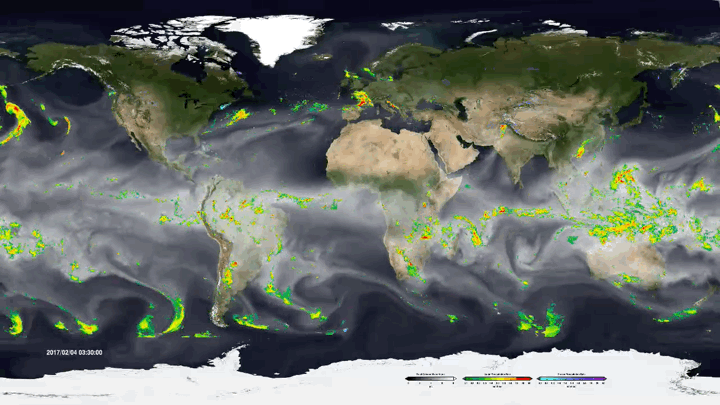Actually apparently it's the other way. Conservatives are less likely to answer polls. Pollsters have been trying to account for it, but polling has become a very dynamic challenge.
ironsoap
I read the headline and was thinking, 'no way Trump works out with Strava.' As usual he has people who do that for him.
Telling who aided with the brief.
- Idaho, Alaska, Wyoming and the Arizona Legislature. Iowa, which spearheaded a brief signed by attorneys general from Alabama, Arkansas, Mississippi, Nebraska, North Dakota, South Carolina, South Dakota and Texas.
- Utah’s entire Congressional delegation, which includes Sens. Mitt Romney and Mike Lee, and Reps. Blake Moore, Celeste Maloy, John Curtis and Burgess Owens, all Republicans. Wyoming GOP Rep. Harriet Hageman also signed onto the brief.
- The Utah Legislature.
- The Wyoming Legislature.
- The Utah Association of Counties.
- The American Lands Council, a nonprofit organization based in Utah that advocates for access to public lands.
- The Sutherland Institute, a Utah-based conservative think tank.
- The Utah Public Lands Council, Utah Wool Growers Association, Utah Farm Bureau Federation, and county farm bureaus from Beaver, Garfield, Iron, Kane, Piute, Sanpete, Sevier, Uintah and Washington counties.
- The Pacific Legal Foundation, a nonprofit law firm.
- A coalition of counties in Arizona and New Mexico, the New Mexico Federal Lands Council and New Mexico Farm and Livestock Bureau.
Local send works well for me between android and iDevices in most cases. I will say it struggles with VPN'ed connections, which is by design of the network and some VPN will block local connections.
I know sharedrop.io uses a similar web based model as pairdrop and runs into the same VPN issue, but I'm curious if the room function might overcome that in pairdrop.
I've been working with this issue for along time. Trying to find something platform agnostic and works with vpns.
App wise, I suggest Localsend for files
Information wise, I suggest Saladroom although there are several alternatives as well like ToffeeShare and ShareDrop
I mostly use Signal though, as it's the simplest at hand app which fairly reliably makes it accessible to my various devices... With the downside of storing it.
Indeed, I'm feeling lazy and need a non-ai translator please... ?
Maybe because it's now fentanyl...
'Be like Officer Michael Dieck and get away with murder.' My nightmare vision of how they are recruiting.
“The offices of the Central Social Institution of Prague, Czechoslovakia with the largest vertical letter file in the world. Consisting of cabinets arranged from floor to ceiling tiers covering over 4000 square feet containing over 3000 drawers 10 feet long. It has electric operated elevator desks which rise, fall and move left or right at the push of a button. to stop just before drawer desired. The drawers also open and close electronically. Thus work which formerly taxed 400 workers is now done by 20 with a minimum of effort.
If approved, it will affect all Safari certificates, which follows a similar push by Google, that plans to reduce the max-validity period on Chrome for these digital trust files down to 90 days.
Max lifespans of certs have been gradually decreasing over the years in an ongoing effort to boost internet security. Prior to 2011, they could last up to about eight years. As of 2020, it's about 13 months.
Apple's proposal would shorten the max certificate lifespan to 200 days after September 2025, then down to 100 days a year later and 45 days after April 2027. The ballot measure also reduces domain control validation (DCV), phasing that down to 10 days after September 2027.
And while it's generally agreed that shorter lifespans improve internet security overall — longer certificate terms mean criminals have more time to exploit vulnerabilities and old website certificates — the burden of managing these expired certs will fall squarely on the shoulders of systems administrators.
Over the past couple of days, these unsung heroes who keep the internet up and running flocked to Reddit to bemoan their soon-to-be increasing workload. As one noted, while the proposal "may not pass the CABF ballot, but then Google or Apple will just make it policy anyway…"
...
However, as another sysadmin pointed out, automation isn't always the answer. "I've got network appliances that require SSL certs and can't be automated," they wrote. "Some of them work with systems that only support public CAs."
Another added: "This is somewhat nightmarish. I have about 20 appliance like services that have no support for automation. Almost everything in my environment is automated to the extent that is practical. SSL renewal is the lone achilles heel that I have to deal with once every 365 days."
Until next year, anyway.


NBC Early and mail in so far. 11am EST Nov 1 has 65 million votes so far. The battle ground only view is reflecting the OP's article for PA.